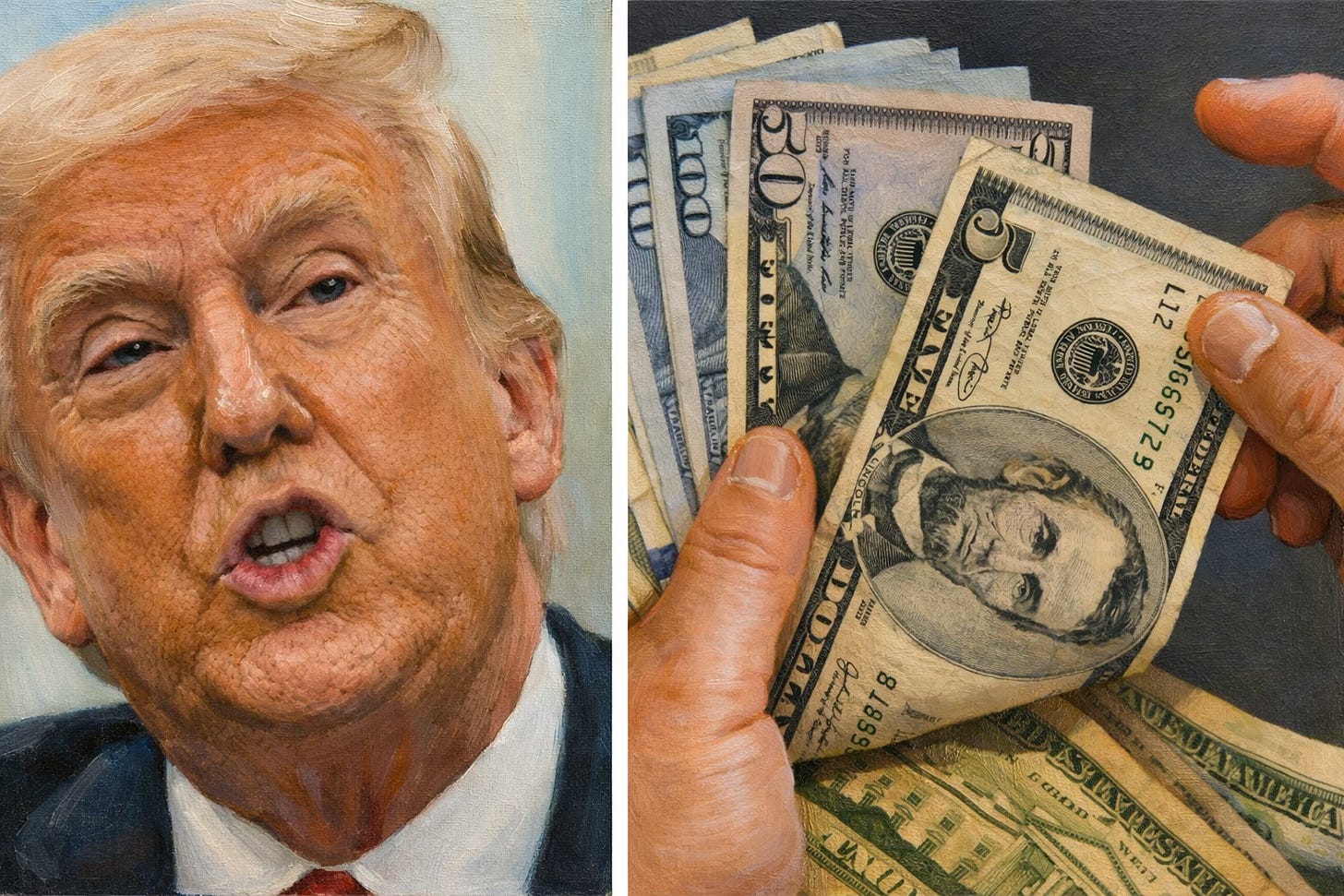South Korea as America’s ATM
$350B or collapse: The cost of being an ally.
Washington didn’t negotiate with South Korea. It marched in with a bill of tribute: wire $350 billion to U.S.-controlled projects, or eat 25% tariffs. If Seoul pays, its financial system could snap.
Commerce Secretary Howard Lutnick boiled it down to a thug’s ultimatum: Pay the tariffs or accept the deal… there is no flexibility.
The deal mirrors the Japan template: a U.S.-managed fund with a 90% Washington, 10% ally profit split once principal is repaid.
The catch? South Korea isn’t Japan.
Tokyo has an unlimited Fed swap line, reserve-currency status, and a $1.25 trillion/day yen market. Seoul has none of that.
The won is an emerging-market currency with $142 billion/day turnover. Forcing Seoul to source dollars at Japan scale is like demanding a compact car tow a freight train.
Korea’s reserves: $416.3 billion. Washington’s demand: 84% of the entire safety net.
Torch that much or jam a decade of dollar-buying into months, and you invite a currency run. A 1997 flashback with modern leverage. This is how systems break.
The July framework never became a signed contract. The talks are stuck because the U.S. wants cash into U.S.-managed entities, with Washington picking projects and Korea eating risk. Seoul offered loans and guarantees via KEXIM and K-Sure.
Washington said no. Deadlock.
ICE raided a Hyundai-LG battery site in Georgia on September 4, cuffing hundreds of Korean workers over permits. Then the administration floated maybe temporary visas after the outrage.
You can’t shake Korea for hundreds of billions to build American factories, then perp-walk the specialists needed to run them.
The damage is mounting. Hyundai and Kia reported ₩1.61 trillion in Q2 operating profit damage from U.S. tariffs, while Japan’s carmakers benefit from their signed 15% rate.
Korean corporates poured $55 billion into America during the last industrial boom. Now they’re told to ante up again while rules shift mid-hand. Seoul scraped only $150 billion in corporate pledges—less than half the target.
Dean Baker calls it outrageously foolish. Korea loses $12.5 billion annually from 25% tariffs versus 15%. Paying $350 billion upfront to soften that hit is asinine. Use $17.5 billion to backstop affected firms, keep reserves intact, and stop pretending one-off payments buy peace.
The $350B isn’t about trade flows—it’s burden-sharing lashed to alliance modernization that drags the ROK into China containment, including Taiwan scenarios. The message is clear: pay up, line up.
There’s one escape: law. Lower courts said the president can’t use emergency powers for broad tariffs. The Supreme Court fast-tracked the case for November 2025. If the justices kill that authority, the sword vanishes.
Seoul’s smartest move isn’t capitulation or defiance—it’s stalling until the ruling while demanding a Fed swap line for any mega-transfer.
Capitulate. Wire the money, risk a currency crisis, outsource your sovereignty, and hope the White House doesn’t move the goalposts again. Spoiler: it will.
Defy. Eat the 25% tariff, deploy a domestic mitigation package ($17.5B gets you a long way), preserve your reserves, and accept a year or two of industrial bruises. Painful but survivable.
Stall. Keep talking, cite market-stability math and the ICE fiasco as reasons for due diligence, push past the Court’s decision, and make a swap line non-negotiable. It’s not cowardice; it’s risk management.
One last point that should terrify any serious policymaker: South Korea’s growth track is already anemic. 0.8-0.9% is the current year’s sobering forecast.
You don’t detonate your reserves under those conditions unless you’re suicidal or captured. And yes, National Assembly sign-off may be required, meaning this isn’t just a ledger entry. It’s a political suicide note.
When an alliance morphs into a cash register, trust evaporates. When immigration SWAT teams slam the same factories you’re demanding get built, credibility is gone.
South Korea still has agency. It can refuse tribute, buffer its industries, and force the conversation back to rules, not ransom.
If Washington insists that friendship now costs $350 billion, Seoul should ask an impolite question in return: What exactly are we buying—and how soon before you charge us again?



Thank you for reporting on this insanity. Unreal to bring such shame upon our nation, a bully nation now.